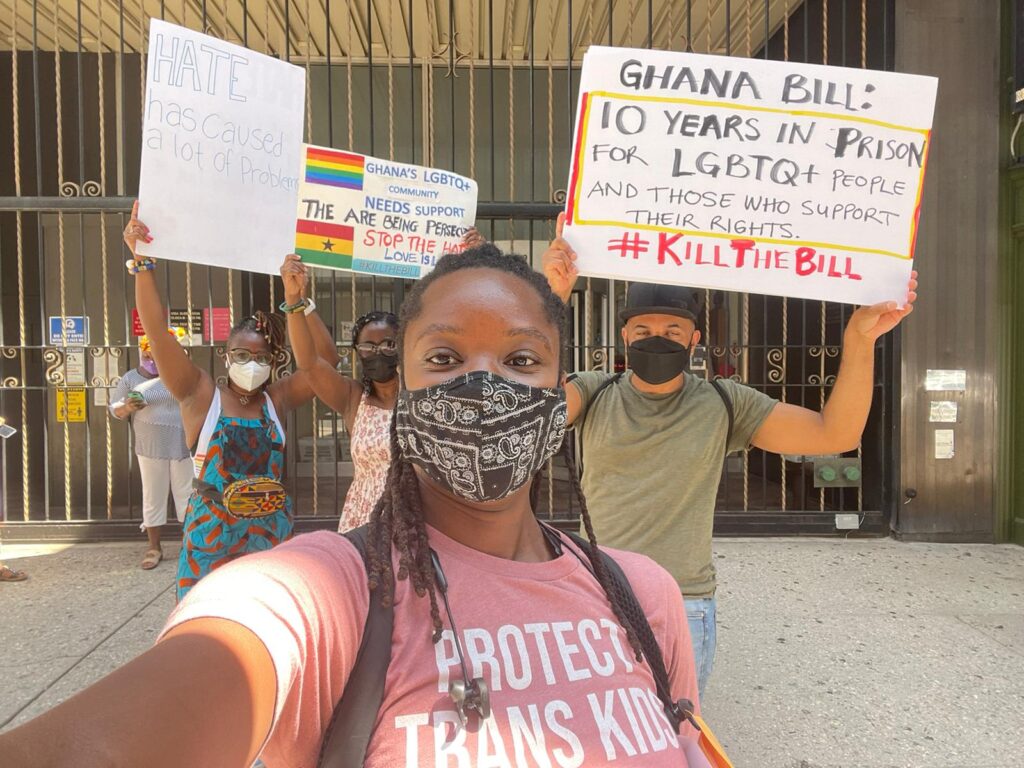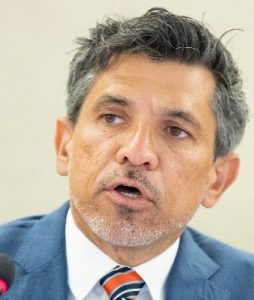UN human rights experts oppose Ghana anti-LGBTQ bill
Colin Stewart is a 45-year journalism veteran living in Southern…
Opponents of Ghana’s harsh anti-LGBTQ proposal have gained new allies, as UN human rights experts came out against it, calling the bill a “recipe for violence”.

Homosexual activity is already punishable with up to three years in jail in Ghana. On top of that, the new bill would impose a penalty of up to five years imprisonment for being LGBT+ and up to 10 years for advocating for LGBTQ rights.
This is the Aug. 12 announcement from the U.N. Office of the High Commissioner on Human Rights about its 13 human rights experts’ opposition to the “Proper Human Sexual Rights and Ghanaian Family Values Bill”:
Ghana: Anti-LGBTI draft bill a “recipe for violence” – UN experts

UN human rights experts urged Ghana’s Government to reject a proposed ‘family values’ bill, saying it seeks to establish a system of State-sponsored discrimination and violence against the LGBTI community. The first reading of the bill took place on 2 August 2021, and its consideration is expected to resume in October 2021.
“The draft legislation argues that any person who deviates from an arbitrary standard of sexual orientation or gender identity is immediately to be considered dangerous, sick or anti-social,” said the experts. “Such laws are a textbook example of discrimination.
“The proposed law promotes deeply harmful practices that amount to ill-treatment and are conducive to torture, such as so-called ‘conversion therapy’ and other heinous violations like unecessary medical procedures on intersex children, and so-called corrective rape for women,” they added.
The independent experts, appointed by the Human Rights Council, presented an analysis of the draft bill to the Ghanaian Government, concluding that adopting the legislation in its current or any partial form would be tantamount to a violation of a number of human rights standards, including the absolute prohibition of torture.
For example, attempts to prevent human rights defenders from organising themselves to defend LGBTI people, and the absolute prohibition of public debate on sexual orientation and gender identity, raises grave concerns about rights to freedom of opinion and expression, and of association. Moreover, the bill in question would essentially legitimize the above instances of violence against LBTI women and reinforce existing gender stereotypes and discrimination against women, which are both cause and consequence of violence against women and girls.
“The consideration of this legislation is deeply perplexing in a country that has been regarded as a champion of democracy in Africa, with an impressive record of achieving certain Millennium Development Goals by 2015,” they said. They cited specific concerns about the MDG goals on health, education, employment, housing and gender justice.
“The draft legislation appears to be the result of a deep loathing toward the LGBTI community. It will not only criminalise LGBTI people, but anyone who supports their human rights, shows sympathy to them or is even remotely associated with them.
“Given that LGBTI people are present in every family and every community it is not very difficult to imagine how, if it were to be adopted, this legislation could create a recipe for conflict and violence.”
The experts
The U.N. experts who released this statement are as follows:
-

Victor Madrigal-Borloz, the U.N. independent expert on violence and discrimination based on sexual orientation and gender identity. (Photo courtesy of Twitter) Victor Madrigal-Borloz, Independent Expert on protection against violence and discrimination based on sexual orientation and gender identity;
- Reem Alsalem, Special Rapporteur on violence against women, its causes and consequences;
- Koumbou Boly Barry, Special Rapporteur on the right to education;
- Irene Khan; Special Rapporteur on the promotion and protection of the right to freedom of expression;
- Mary Lawlor, Special Rapporteur on the situation of human rights defenders;
- Nils Melzer, Special Rapporteur on Torture and other Cruel, Inhuman or Degrading Treatment or Punishment;
- Tlaleng Mofokeng, Special Rapporteur on the right of everyone to the enjoyment of the highest attainable standard of physical and mental health;
- Elina Steinerte (Chair-Rapporteur), Miriam Estrada-Castillo (Vice-chairperson), Leigh Toomey, Mumba Malila and Priya Gopalan — the Working Group on arbitrary detention;
- Clément Nyaletsossi Voule, Special Rapporteur on Rights to Freedom of Peaceful Assembly and Association.






I just wanted some more information on the topic in this article. And it gives me plenty of unnecessary staff. I wish I got the details on compacom.com as I used to do before. Experiments are not always good. Sometimes an old trustful resource is worth sticking to it.